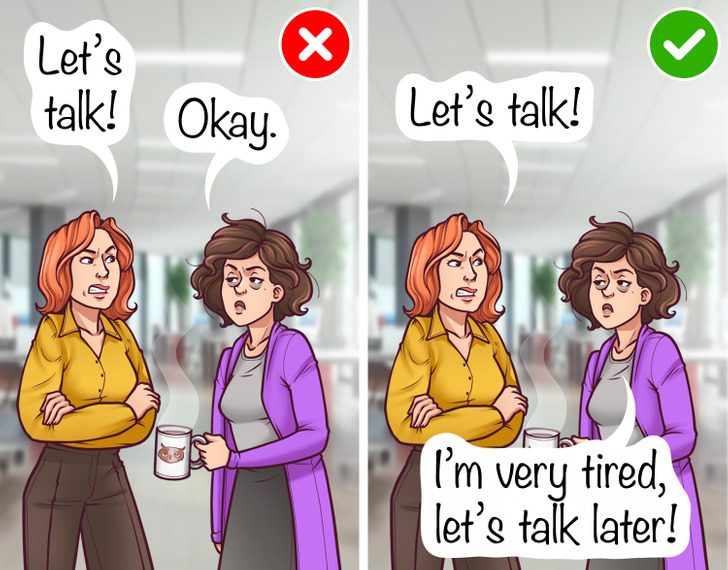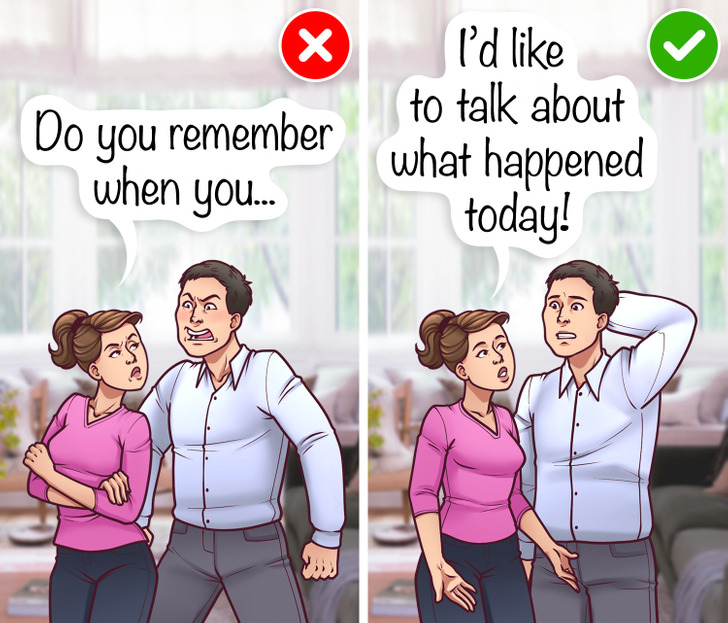A 2012 online study showed that couples who experience healthy conflict are 10 times more likely to be in a happy relationship than those who ignore difficult conversations. So fighting with your partner can have many benefits for your relationship, as long as you and your loved one do it in a loving and constructive way.
We understand that arguing is quite common, and that is why we have prepared a list of techniques to follow to do it better.
Schedule A Time And A Place To Talk About The Issues

If you feel things starting to heat up, choose a time and place to vent your frustrations. Taking time before discussing the matter will help both of you prepare and say things wisely before discussing things with each other out of anger and frustration.
So if you start fighting, say something like, “Let’s start tonight or some other time when there’s time to discuss things,” as psychologists explain.
Make Sure Your Basic Needs Are Met Before Getting Into A Conversation

An important rule to follow in order to have healthy arguments is to make sure that we are ready to navigate the conflict. Fighting with a loved one is an extremely difficult thing for which we must at least be prepared.
That’s why experts advise people to make sure they meet their basic needs, like food, water, air, and sleep, before engaging in a difficult conversation.
Stay On Topic And Don’t Bring Up The Past

During an argument, you’re more likely to bring up past mistakes and get sidetracked into other topics you planned to talk about later. But that only makes it worse, since the two of you can’t focus on one thing at a time.
Instead, stay on topic to discuss the current problem, and once you solve the first problem, you can tackle a new one under different circumstances.
Listen Carefully Before Speaking

When a loved one says something you don’t agree with, you’re likely to respond right away. But the best thing you can do is listen until your partner is done talking.
It simply indicates respect, willingness to cooperate, and most importantly, the act of listening to your partner. Also, remember that the right body language can also make them feel heard.
Share How You Feel About Something Instead Of Blaming The Other Person

An easy but very effective technique is to use “I” instead of “you”. In other words, saying “You didn’t go to my friend’s birthday” is very different from saying “Not going to my friend’s birthday made me sad.”
It really helps to share your feelings and your frustrations without starting the blame game, which usually doesn’t end well.
Avoid Hyperbolic Language, Like Always And Never

Once someone starts using generalizing words like “always” and “never,” they automatically exaggerate the situation, causing the other person to engage in defensive behavior.
This situation can be avoided by focusing on calmly sharing your feelings, or perhaps using less aggressive words like “occasionally.”
Do you have another technique to add to this list? We’d love to hear about it in the comments!


